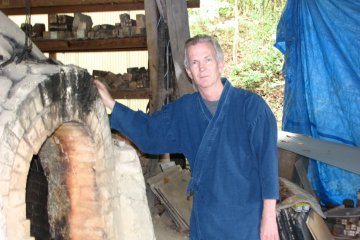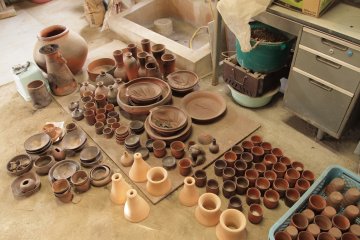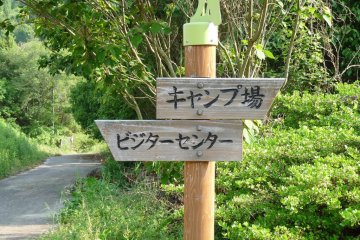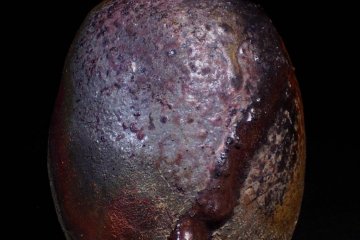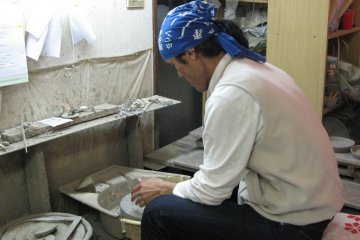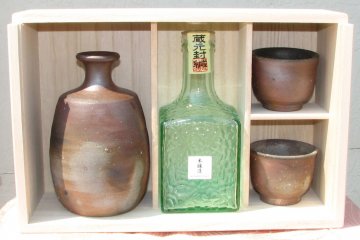Inbe Station, Bizen City is the tale of two exits. The rear exit faces mountains and fields giving no indication of what is in front. The front of the station is the gateway to Bizen’s famous pottery, known as Bizenyaki.
A few minutes walk from the station there are several master potters who are continuing a tradition that has been passed down from generation to generation. One of them is Mr. Nanba. A tall slender man with long black hair tied in a ponytail, Mr. Nanba greeted me with a smile as I enter his shop, which sits on land he shares with his father. I immediately noticed a picture of his son playing at one of their many kilns and realized that the craft was being passed to the next generation.
Mr. Nanba showed me around his shop and explained the different uses for his various creations. He went on to explain the relationship between fire, earth and water that makes Bizenyaki what it is. He explained that the area we were standing in used to be the sea and was one of the many land reclamation projects undertaken during Japan’s Edo period. The water was the link that brought products from Bizen to the rest of Japan. The earth or clay came from the land of Bizen itself and had to be excavated in large amounts to supply the next generation of potters. The potter must acquire clay not for himself but for his son as he uses clay that was prepared by his father.
Mr. Nanba told me that the land was also important because in the past all potters used to be farmers as well and would produce pottery between harvests. The fire comes from the wood used to heat the kilns.
Mr. Nanba figured that to see is to understand, so he took me to his kilns. A few minutes drive from his studio, his kilns were located on a mountain plateau inside two buildings that could be easily mistaken for being abandoned. The main indicator of activity was the ton of wood piled around them that gave away the building’s purpose. Mr. Nanba smiled, pointed and said, “These are my father’s kilns, those are my father’s fields and that is my father’s mountain".




